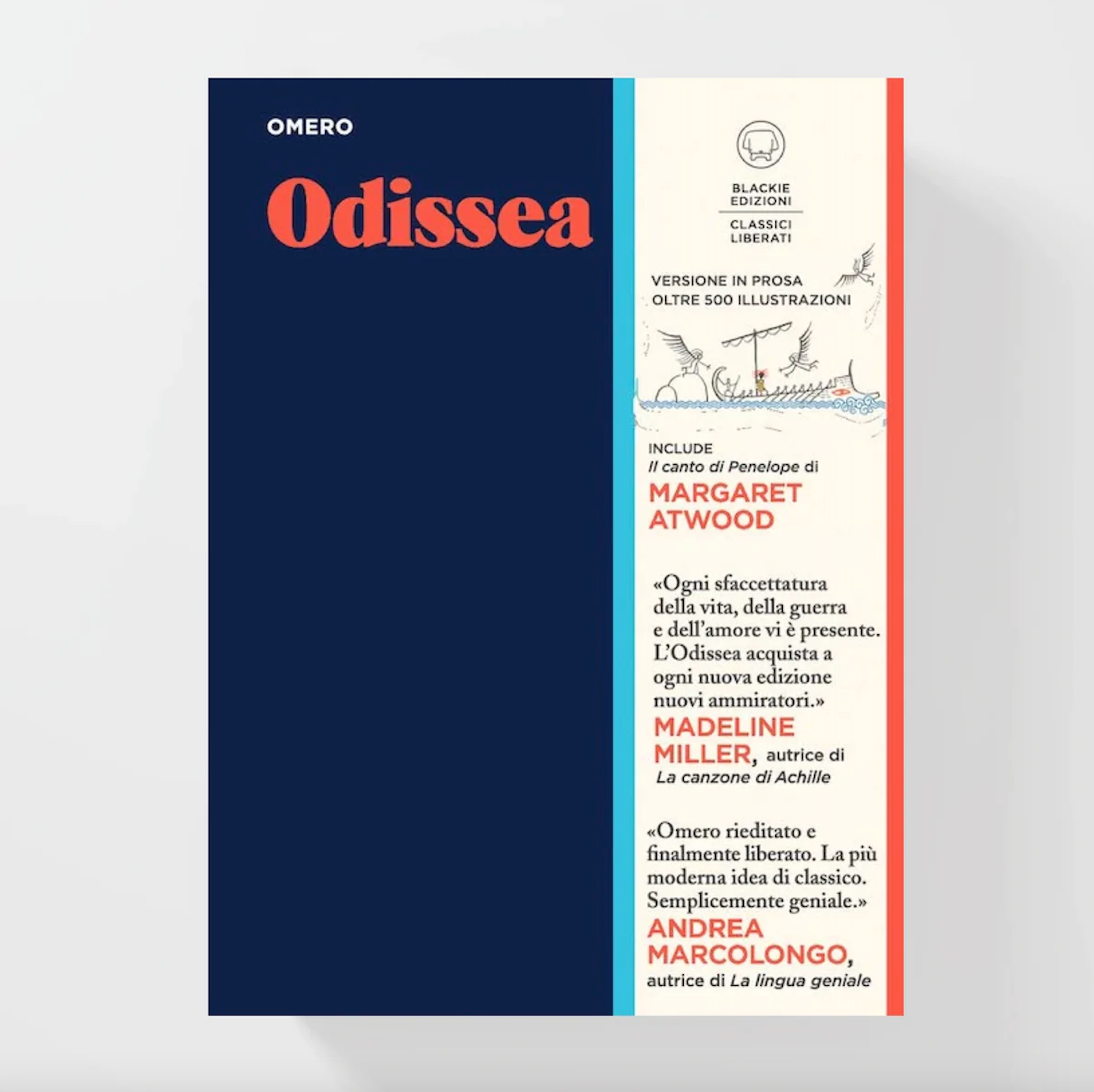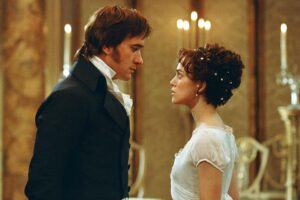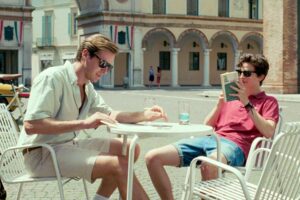Can you still hear the Muses sing? Perhaps not in the same way as the ancient Greeks intended, but their singing has overcome the oceans of time and has come down to us, certainly in a revisited and modern key, but still as strong as back then. Achilles, Hector, Odysseus, Agamemnon… Of course, they were figures who accomplished heroic and titanic deeds, but, what else were they, if not men, after all? With their imperfections, emotions, and difficulties, fighting a 10-year war or spending as many years trying to get home, the characters of the epic remind us that the real strength lies in our humanity.
In times of change, connection, and frenzy in which we are living today, can literature save us and remind us of our worth as human beings? To promote this intent comes the series of freed classics by Blackie Edizioni with a first, great title to open the dances: the Odyssey, translated by Daniel Russo (from the English version by Samuel Butler) and illustrated by Calpurnio, an amazing work, freed (precisely) from the false and harmful patina of boredom to which it is sometimes associated and from the complexity of the academy to make it available to everyone.
Professor Elena Caselli has talked with us about the need to dive back into the pages of the Odyssey and to rediscover the events of Homer, Penelope, and Telemachus, but also of “secondary” characters such as Nausicaa, Polyphemus, Circe, and Mentor. During Bookcity Milano, she presented the books through different themes, such as research, waiting, the different, the beyond, and the landing. To remind us of the importance of knowing ourselves, knowing our past, but also, above all, the modernity of our human condition.
Why the Odyssey and why now?
The first word in the Odyssey in Greek is “andra”, which means “man”, and I think that the Odyssey is a work in which human beings are discussed in every aspect, and broadly speaking of course. There’s always a need to rediscover humankind, so the Odyssey is good to read at any time! [laughs]
The Blackie Edizioni series to which the Odyssey belongs is called “Classics set free”: in a world and in a society like ours, how can we go back to hearing the Muses sing?
I’ll go back to the answer I gave you before: classics, like Italo Calvino would say, are always contemporary; for example, when we read a classic as kids and then we read it again a few years later when we’re adults, it can happen that that book still wins our hearts but also give us a different set of answers. So, in my opinion, in every society and every era, you need to find the right channels to tell classics in the right way and with the right means and language.
Ulysses is a complex hero, tormented and “multi-faceted”, as the proem to the work says: how could we contextualize his πολύτροπον way of being in 2022?
I think it’s very in line with the times we’re living in because we need to adapt to circumstances, whether they are positive or negative; I believe that contemporary society is asking us to adapt to many different situations. So, I think it’s in line with what we’re living right now.
The Odyssey is a work that has survived the passing of time, just like Ulysses on his way back to Ithaca: do you think that the events and characters from a thousand years ago can still allow us to resonate with them, to make us re-live a sort of re-invented epic, or to open an engaging dialogue/debate around their times? For example, during the debate, we discussed the reading key that highlights the female figure…
Absolutely. This, for example, is unexpected because you think about the Greek mindset of the time so you don’t imagine such a space left for a female figure, so I believe that in this work there are snapshots of modernity and deep reflections. Obviously, content like the Odyssey gives the reader, on the basis of their own sensitivity and culture, a chance to find messages for themselves.

“In every society and every era, you need to find the right channels to tell classics in the right way and with the right means and language.”
In the 26th Canto of the Inferno, Dante made Ulysses pronounce a life sentence that’s still so current: “Consider well the seed that gave you birth: you were not made to live as brutes, but to follow virtue and knowledge”. I believe that books and stories are still the most effective way to process the fear of what’s next and who’s different from us and to enrich us as humans, even though, perhaps, it’s unfortunately not a very common opinion anymore. What do you, as a “teacher for passion”, hope to leave your students with when it comes to literature, not only classics-wise but generally speaking?
I hope that they discover a means to get to know themselves through reading. I’d be fine even if I could achieve this only result! [laughs]
What’s your favorite canto or favorite moment of the Odyssey?
Book 1 for sure, so Telemachus’ episode because I think it describes teenagers very well even in their current situation, in the way in which they’re the ones looking for adult figures in their lives. Then, there’s also Nausicaa’s episode, a young and strong female character in the search for love.
If you were to choose the next classic to “set free”, which one would you choose and why?
Ariosto. Because I think that Orlando Furioso is extremely modern, it’s a work built on “entrelacement”, which is the same narrative technique of today’s TV series, so to say! [laughs]
The book that’s currently on your nightstand.
A young adult novel written by Fabio Geda e Marco Magnone, two authors and friends of mine who sent me their latest book, a thriller called “I segreti di Acquamorta”.
Thanks to Blackie Edizioni.





